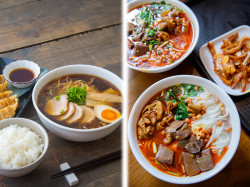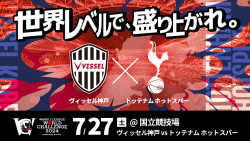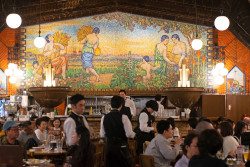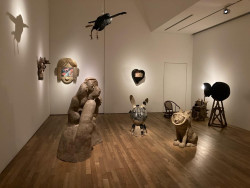
July 29, 2010
Jake Shimabukuro
It’s a yoga session in three strums, says the ukulele evangelist
Originally published on metropolis.co.jp on July 2010

Courtesy of Avex
With all the trendy bands that traipse through Tokyo, it’s rare to sit down with a certified instrumental virtuoso. But listening to Jake Shimabukuro whip off a rendition of “Bohemian Rhapsody” on his ukulele, it’s clear the Hawaiian-born Japanese-American is the real thing.
While bands often try to capture the zeitgeist of the moment and speak for the hopes and dreams of their generation, Shimabukuro’s motivation seems to be more about the notes themselves. “I love problem solving,” says the musician during a Tokyo stopover, hinting at the competitive spirit poised beneath his laidback, aloha demeanor. “So trying to deal with the limitations of the ukulele is something I like. When I tackle a song that is very difficult or has a range that exceeds the ukulele—which is most songs—it allows me to think outside the box. I appreciate that because it makes each piece unique.”
Queen’s monumental rock-opera opus provided the perfect challenge. “There were a lot of problems with ‘Bohemian Rhapsody,’” he explains. “You have almost 100 vocal tracks, and everything from guitar to gong and timpani. It’s that David and Goliath thing: you’ve got this monstrous piece, and then you’ve got this tiny four-string instrument. I liked that idea of trying to scale the song down but keep the listener feeling like they can still hear it. The real challenge was what to leave out, because you have an ocean of notes happening but I can only take four. I listened to it over and over and honed in on different parts. It was great—a lot of sleepless nights, but well worth it.”
The worldwide evangelist for the ukulele—a Hawaiian adaptation of a Portuguese instrument known as a bagina—may now play for Queen Elizabeth and, in an upcoming tour, rapturous thousands at Tokyo’s prestigious Orchard Hall, but when Shimabukuro first parted ways with the simple Hawaiian ukulele traditions, his teachers had a different reaction. “There were a few people—some of my mentors—who said, ‘You should play the guitar’,” he recalls. “But my take was, ‘Well, it’s already been done on the guitar.’ I think in different styles of music like rock and pop, there is a place for the ukulele.”
Whether cause or effect, Shimabukuro is part of an ongoing ukulele boom. “Look at Train’s [2009] hit song ‘Hey, Soul Sister,’—it’s all ukulele,” he notes. “I think there is definitely a change. You now hear ukulele in the background of commercials. When I talk to music stores like Sam Ash, they say ukulele sales are skyrocketing and guitar sales are dropping. So it’s a good time to be a ukulele player.”
Shimabukuro’s upcoming Tokyo engagement will see him performing solo on an unaccompanied, unprocessed ukulele. For the “Jimi Hendrix of the Ukulele,” the return to basics was a process of self-discovery. “I went through the phase on my second and third albums when I did a lot of distortion and wah wah stuff, just rocking out,” he says. “But when those albums came out, people said, ‘So is this your new thing, collaborating with electric guitar players?’ It confused a lot of people, because they assumed it was electric guitar. So then I went back to the acoustic sound, because I felt like I was becoming an electronics person rather than an acoustic, organic instrumental person. One day I closed up the pedal case and put it in my closet, and haven’t taken it out since. It was like rediscovering the instrument again, and now that’s all I carry.”
Shimabukuro may not be the voice of a generation, but through the ukulele he does try to speak to his generation. “I really believe that the ukulele is the instrument of peace,” he states. “It makes people feel good, and I tell people if everyone played it, the world would be a better place. I want to show people that the ukulele is, first, a lot of fun and, second, affordable, and [encourage them] to just give one a try.
“People don’t have time to take piano lessons, and the benefits of learning an instrument and creating music is amazing. It’s such a great stress releaser to come home at the end of a day and strum a few chords. I tell people it’s an entire yoga session in three strums. It does something to the mind, body and spirit, and people need that now at a time when they are overwhelmed with life. The ukulele is the answer to bring us back to center.”
Jake Shimabukuro
Fast-fingered ukulele player from Honolulu. Aug 28, 6pm; Aug 29, 3pm, ¥6,500. Bunkamura Orchard Hall, Shibuya. Tel: Kyodo 03-3498-9999.







